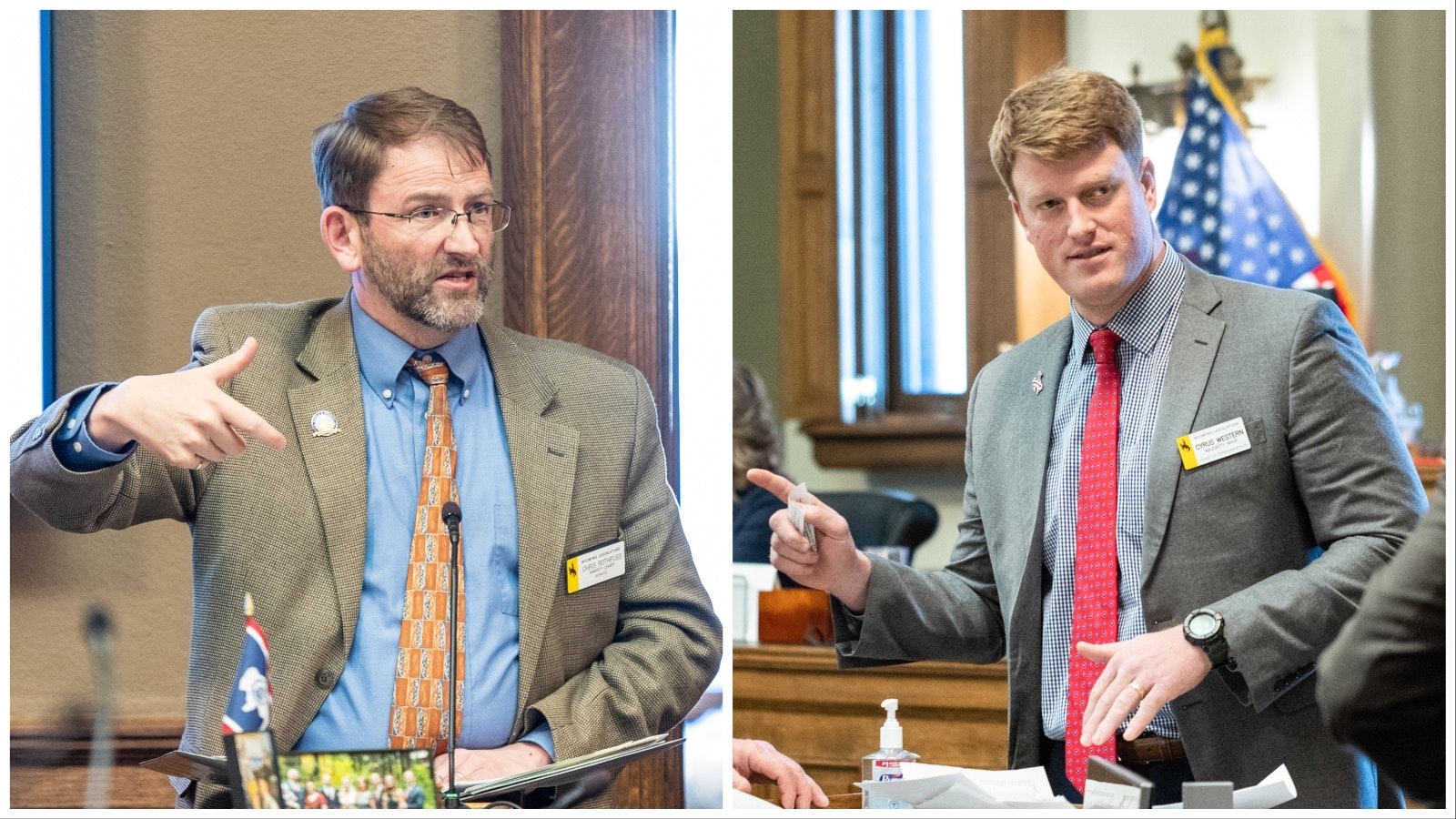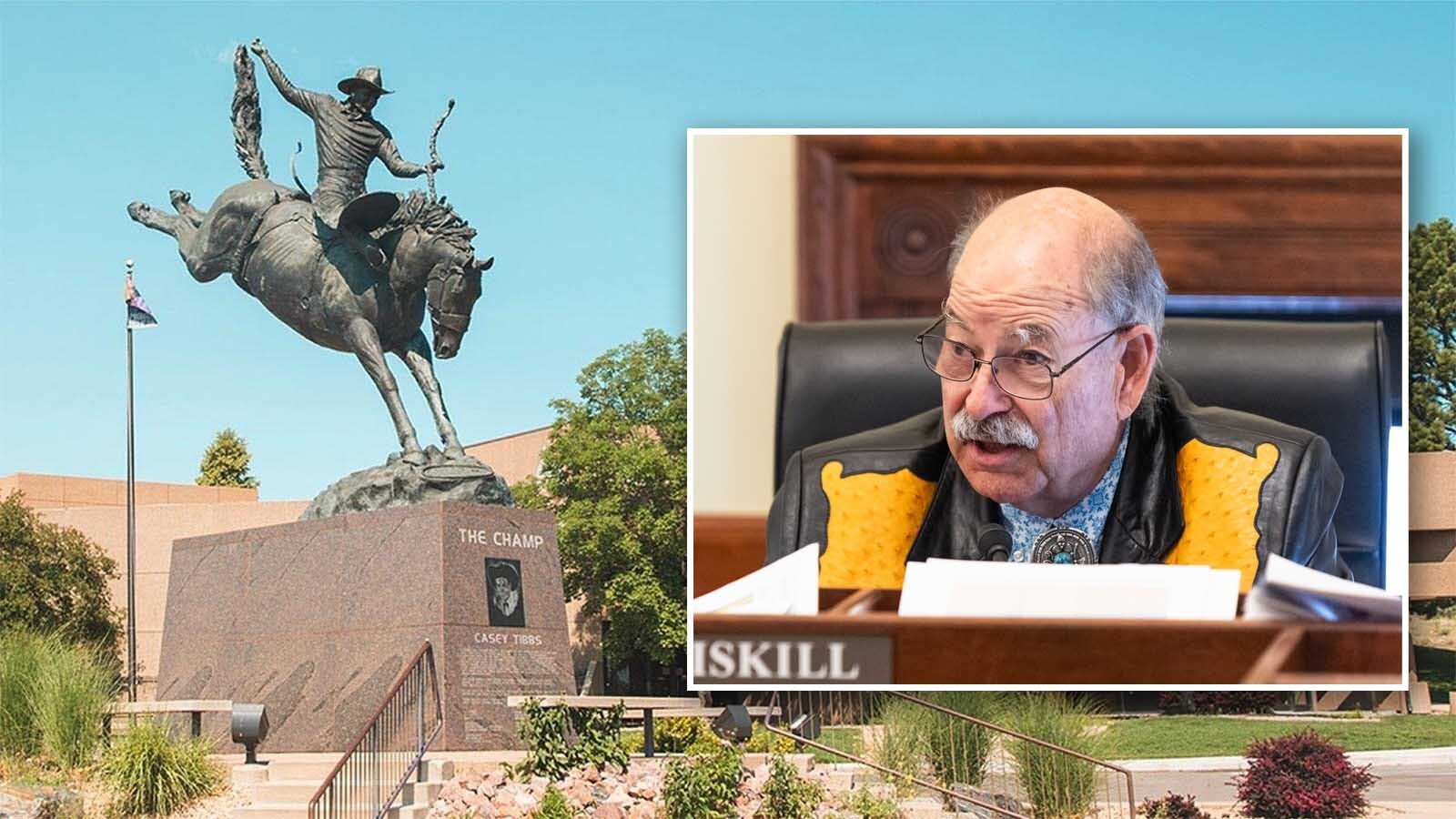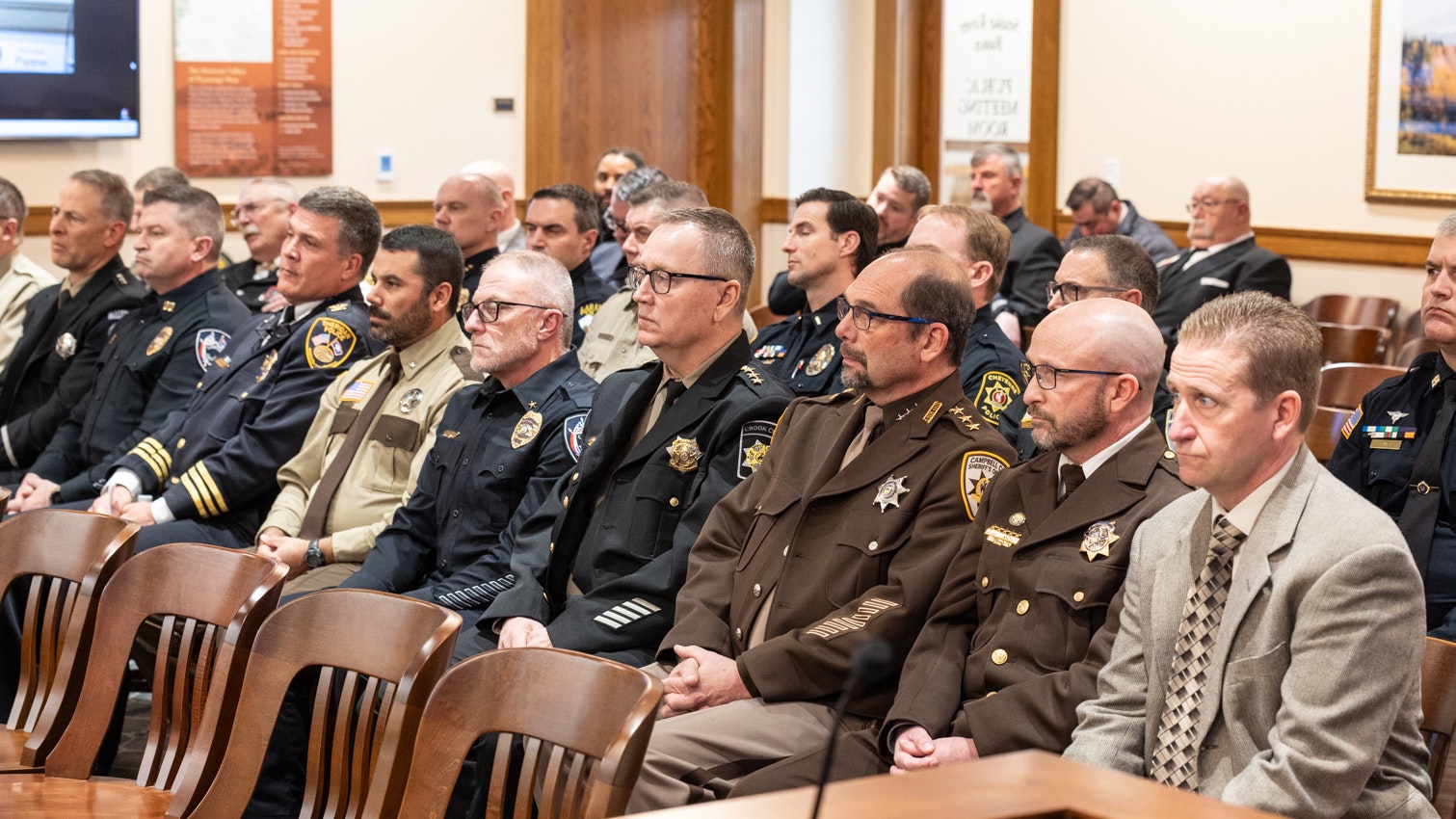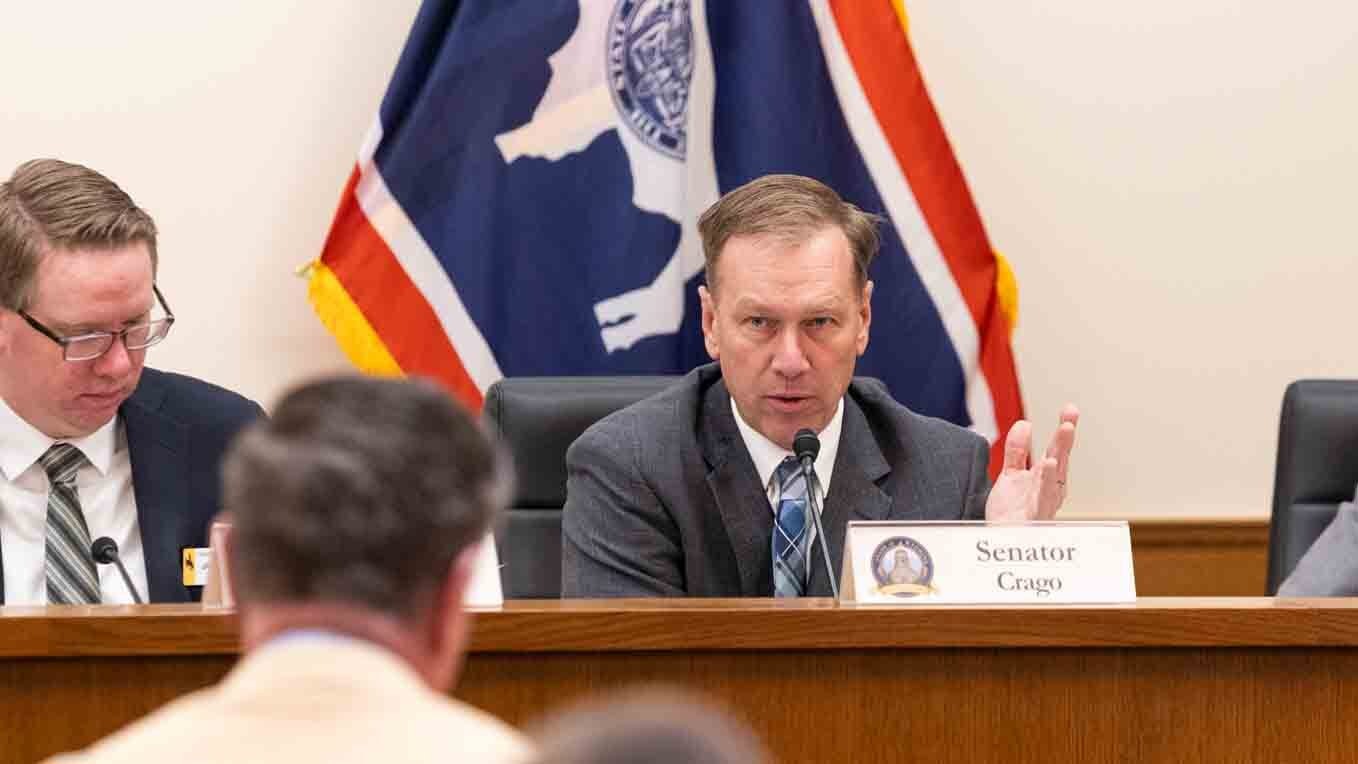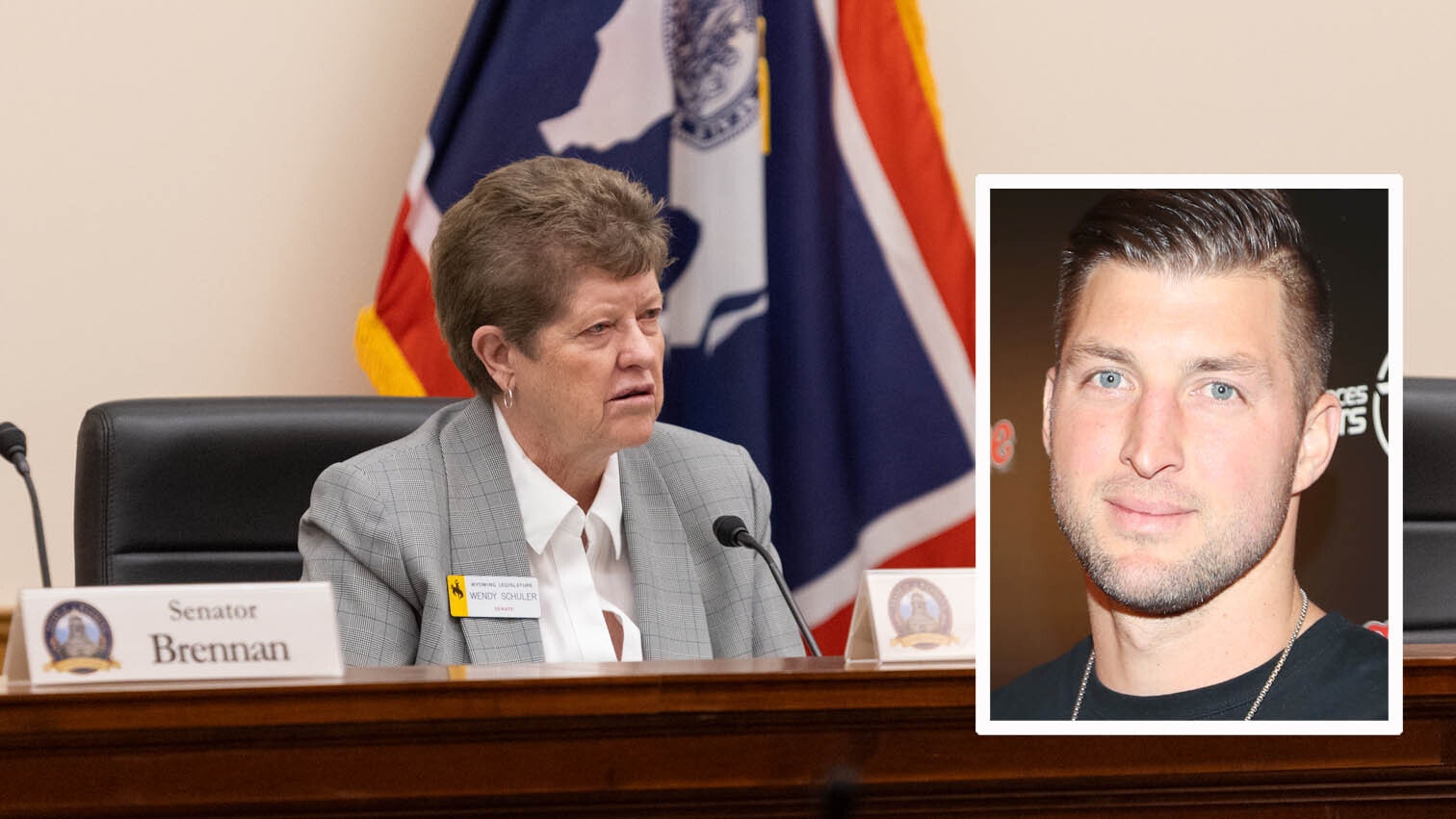Artificial intelligence seems to be almost everywhere in all kinds of applications these days, and the Wyoming Legislature wants to get ahead of it.
That’s why the Legislature’s Select Committee on Blockchain, Financial Technology and Digital Innovation Technology is considering three proposed bills that add AI regulation in Wyoming.
“This is really really important legislation,” Brenden Maher, a digital identity and data privacy expert, told the committee this week. “It’s extraordinarily difficult to get it right.”
The committee is considering a draft bill that establishes an avenue for civil prosecution of “synthetic media.” It would allow anyone who’s the subject of or is misled by synthetic media to sue in civil court to enjoin or restrain the distribution of the synthetic media. They can also seek damages from the person who knowingly and intentionally makes the synthetic media publicly available.
The committee also considered another bill that establishes crimes and offenses for the unlawful distribution of misleading “synthetic” media, which was rolled into the civil penalty draft bill.
Synthetic media is considered any video or voice recording that has been fully or partially generated by computer algorithms and attempts to mimic a record of actual events, what is popularly known as a “deep fake.”
“The whole intent behind this legislation is to ensure these new deep fakes that are coming out — audio, visual and otherwise that are getting better and better — to protect folks from being the subject of one or being misled by one,” said Rep. Cyrus Western, R-Big Horn, co-chair of the committee.
Those found guilty of producing these “deep fake” AI media could face up to six months in jail and up to a $750 fine.
A few members of the committee expressed skepticism that many county attorneys would actually pursue these cases criminally.
Intent
Sen. Tara Nethercott, R-Cheyenne, was concerned about the vagueness of the term “misled,” which she said could theoretically extend to the thousands or millions of people who saw the media.
“You could have the entire state of Wyoming seeking damages for being misled about a political candidate, for example,” she said with a chuckle.
Nethercott also made comparisons to standard slander and libel laws.
“This would certainly fall into this type of libel situation, per say,” she said.
Cheyenne attorney Matthew Kaufman said the legislation should be considered more akin to trade or equality laws.
Western brought up the liberties taken in the content of the hit TV show “South Park” as an example of America’s expansive parody laws and how intent to mislead can be extremely difficult to prove. Before every “South Park” episode, a disclaimer is shown that states the show is not trying to factually depict any of its characters.
Sen. Chris Rothfuss, D-Laramie, who also co-chairs the committee, said the bill focuses on purposeful and intentional efforts to mislead, not protected free speech to parody someone or something
“I don’t think anyone would confuse ‘South Park’ with actual real events, even though a lot of times it might be spot on,” Rothfuss said.
The committee discussed the possibility of giving exceptions to those who provide disclosures that their media is fake to those who consume it.
Cheyenne attorney David Pope, a liaison member of the committee, suggested adding a cause-and-effect mechanism to the legislation proving actual harm or change of action based on receiving the misinformation.
Similar Topics
The committee also considered another draft bill that requires large-scale AI machine users to register with the Secretary of State’s office.
“Do we want to know if artificial intelligences are being used in the state of Wyoming?” Rothfuss questioned. “Is that something the state of Wyoming should be aware of?”
Jon Stokes, who runs a Wyoming-based decentralized autonomous organization, said the committee could also consider requiring streaming services to weed out synthetic AI.
Many social media companies now pay their exceptionally popular users for putting out content.
In 2021, the Legislature passed a law prohibiting the distribution of intimate pictures or videos of a person without that person’s knowledge.
Sen. Dan Furphy, R-Laramie, said he has constituents who have lost thousands of dollars after being solicited by misleading information. Tracking criminals who commit online crimes like these is nearly impossible.
“We’ve got to protect citizens of our state that are being victimized by this, not just misled in a campaign but are losing true dollars out there,” he said.
The committee will continue discussing these topics at its next meeting in November.
Leo Wolfson can be reached at leo@cowboystatedaily.com.

